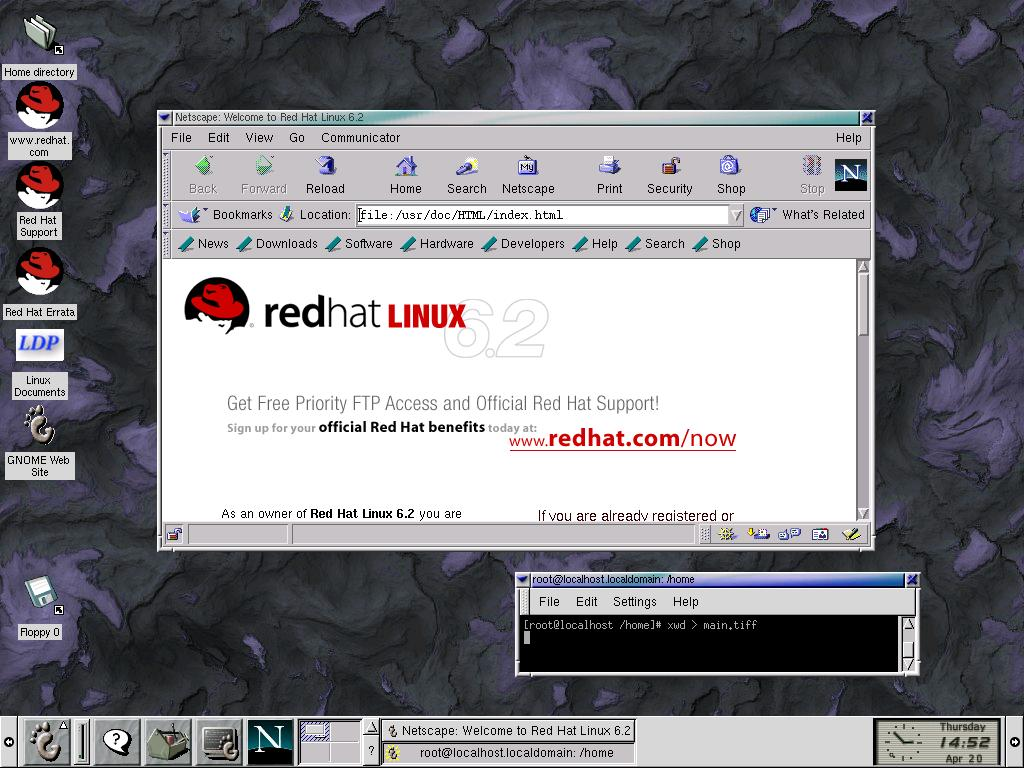AlmightySnoo 🐢🇮🇱🇺🇦
Yoko, Shinobu ni, eto… 🤔
עַם יִשְׂרָאֵל חַי Slava Ukraini 🇺🇦 ❤️ 🇮🇱
- 132 Posts
- 597 Comments

 5·11 months ago
5·11 months agoYou can for example restyle old.reddit.com so that it renders nicely on mobile if you don’t want to install an app for that: https://github.com/OctoNezd/oldlander (see the Tampermonkey section)

 6·11 months ago
6·11 months agoGreat advice! Cross-posted to [email protected] if you don’t mind: https://lemmy.world/post/8842817
Hollow Knight if you’ve never played it, it’s 50% off right now.
I was learning C/C++ back then and although the nostalgia is strong with this one, Turbo C++ was obviously shit (and Borland quickly killed it later anyway), and while looking around for alternatives I found DJGPP which introduced me to the GNU toolchain and so the jump to Linux to have all of that natively instead of running on DOS was very natural. My very first distro was Redhat Linux 6.2 that I got as a free CD along with a magazine (also got a Corel Linux CD the same way that I was excited about given how their WordPerfect was all the rage back then but I was never able to install it, I don’t remember what the issue was) and it looked like this (screenshot from https://everythinglinux.org/redhat62/index.html ):


 7·11 months ago
7·11 months agoLooks like the bot’s Google Translate link doesn’t work. If you have Firefox, you can open the original link in German (https://www.zdf.de/nachrichten/wissen/biontech-krebs-forschung-impfstoff-100.html ) and then use the offline translation that’s available in recent Firefox versions, it’s fast and pretty accurate.
I’m not sure what’s new though, as they’ve already stated that goal last year: https://www.theguardian.com/society/2022/oct/16/vaccines-to-treat-cancer-possible-by-2030-say-biontech-founders
deleted by creator

 31·11 months ago
31·11 months agoRoughly one year. No GPU code however for that project as the target library is CPU-only anyway so not really comparable to PyTorch (and PyTorch is more than just the autodiff), but there was lots of SIMD vectorization. Yeah you could train a neural network on CPU with it if you want, and the expression template stuff I talked about would be somewhat equivalent to PyTorch’s operator fusion, but the target use is more quant finance code.

 31·11 months ago
31·11 months agoAutomatic differentiation in C++17, had to do it from scratch as they weren’t open to 3rd-party libraries and it had to integrate with many symbolic calculations that are also done in the library (so even if you used a 3rd-party library you’d still have to rewrite parts of it to deal with the symbolic stuff). Succeeded in doing it and basically the performance was on par with what people in the industry would expect (all derivatives at once in around 3 times the evaluation time, sometimes much less if the calculation code has no dynamic parts and is differentiated entirely at compile-time).
It was pretty cool because it was a fun opportunity to really abuse template meta-programming and especially expression templates (you’re basically sort of building expression trees at compile-time), compile-time lazy evaluation, static polymorphism and lots of SFINAE dark magic and play around with custom memory allocators.
Then you get scolded by the CI guys because your template nightmare makes the build times 3x slower, so the project then also becomes an occasion to try out a bunch of tricks to speed up compilation.

 9·11 months ago
9·11 months agoUbuntu used to ship free CDs too: https://commons.wikimedia.org/wiki/File:Ubuntu_10.04_CDs.jpg
They stopped doing that in 2011.

 261·11 months ago
261·11 months agoCopied from miku-chan03?
it’s actually the opposite, MikuChan03 was created one month after this: https://github.com/Xerasin/GCinemaCraftDownloader/issues/1

 203·11 months ago
203·11 months agoFor that one no, but another (same person?) parody account does at least report real bugs: https://github.com/mpaland/printf/issues/15
Another fix by Miku-chan (again not in the form of a pull request): https://github.com/lichess-org/lila/issues/5193
Also: https://github.com/EasyRPG/Player/pull/3105 and https://github.com/EasyRPG/Player/pull/3107

 113·11 months ago
113·11 months agowakarimashita 😔

 31·11 months ago
31·11 months agoagree that the name is silly, it apparently also broke the tl;dr bot below
The French used to count in base 20 (so that means both hands and both feet), which is why they read 97 as quatre-vingt-dix-sept, ie
4*20+10+7.
Yeah, but I still think
if (false)is silly because it adds an artificial constraint which is to make sure the disabled parts always compile even when you’re not using them. The equivalent of that would be having to check that all the revisions of a single source file compile against your current codebase.
A simple
if (false)will get optimized out by any modern C or C++ compiler with optimizations on, but the problem is that the compiler will still parse and spend time on what’s inside the if-block and it has to be legal code, whereas with the#if 0trick the whole thing gets yeeted away by the preprocessor before even the compiler gets to look at it regardless of whether that block contains errors or not, it’s literally just a string manipulation.
correct, but will come up if OP chooses to study measure-theoretic probability theory
neither an understatement nor an overstatement, a Big-Theta
wait until you learn about sigma-algebras in measure theory



















If you like chess puzzles: https://f-droid.org/en/packages/jwtc.android.chess/
It’s a full-featured chess app, but what’s nice about it is that it’s also got a large amount of short chess puzzles that are available offline (unlike lichess).